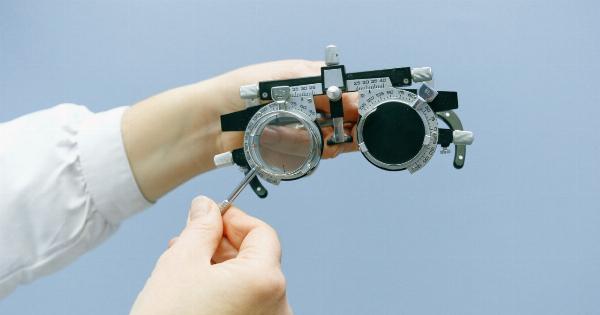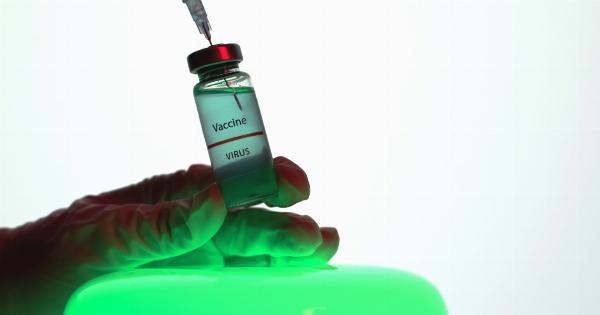Diphtheritis, a highly contagious and potentially life-threatening respiratory disease, has plagued humanity for centuries.
The bacterial infection primarily affects the nose and throat, leading to symptoms such as high fever, sore throat, and the formation of a thick gray membrane in the airways. Although rare in developed countries due to widespread vaccination efforts, diphtheritis continues to pose a significant threat in parts of the world with limited access to medical resources.
The Case of Bell
In a recent breakthrough, a new treatment protocol has emerged, offering hope for diphtheritis patients. One such patient is Bell Williams, a 32-year old from a rural village in South Africa.
Bell’s journey with diphtheritis was an arduous one, but a pioneering medical intervention has provided a glimmer of light in her battle against this debilitating disease.
Diagnosis and Severity
Bell’s condition was initially misdiagnosed, as the symptoms she presented were atypical. Her high fever, extreme fatigue, and progressive difficulty in swallowing were dismissed as benign flu symptoms by local healthcare clinics.
It was only after she experienced severe breathing problems that she was admitted to a regional hospital, where she was finally diagnosed with diphtheritis.
By the time Bell’s diagnosis was confirmed, the bacterial infection had wreaked havoc on her body. The thick gray membrane obstructed her airways, leading to severe respiratory distress.
Bell’s ability to move her head became increasingly restricted, causing her immense physical and emotional anguish.
The New Treatment: A Ray of Hope
At the heart of this groundbreaking treatment is the use of bacteriophages, a type of virus that specifically targets and destroys bacteria.
While conventional treatments such as antibiotics have been successful in combating numerous infections, diphtheritis has proven to be resilient against such approaches, necessitating the development of alternative strategies.
Bell’s medical team, led by Dr. Emma Harrison, an infectious disease specialist, decided to explore the potential of bacteriophages in battling this persistent and life-threatening infection. Dr.
Harrison had previously collaborated with researchers at the forefront of bacteriophage therapy and had witnessed its potential in saving lives.
Bacteriophage Therapy Explained
Bacteriophage therapy, often referred to as phage therapy, is a personalized treatment approach that utilizes the power of bacteriophages to combat bacterial infections.
Bacteriophages are viruses that naturally occur in the environment, capable of seeking out and specifically targeting bacteria. Once they find their bacterial hosts, phages inject their genetic material, causing the bacteria to self-destruct.
In Bell’s case, a cocktail of bacteriophages, carefully selected to target the specific strain of diphtheritis infecting her body, was prepared.
These phages were cultured, purified, and administered intravenously to Bell over a span of several weeks.
Hope Rekindled: The Unfolding Recovery
The impact of the bacteriophage therapy on Bell’s recovery was remarkable. Within days of the initial treatment, the bacterial membrane in her airways began to noticeably break down.
With each passing week, Bell’s breathing improved, and the obstruction in her airways diminished. This dramatic progress brought her great relief and renewed hope for a healthier future.
The Transformation: Bell Regains Head Movement
One of the most notable effects of the bacteriophage therapy on Bell’s recovery was the restoration of her head movement. As the membrane dissolved and her airways cleared, the stiffness in her neck and throat gradually subsided.
Bell, who had been unable to turn her head or even look upwards for months, experienced an incredible transformation.
Physiotherapy played a crucial role in aiding this recovery. Under the guidance of her physiotherapist, Bell performed targeted exercises to strengthen her neck muscles and improve overall flexibility.
Over time, her head movement slowly returned, allowing her to regain a sense of normalcy and independence.
The Dawn of a New Era
The successful outcome of Bell’s treatment demonstrates the immense potential of bacteriophage therapy in tackling diphtheritis.
While further research is needed to refine and optimize this innovative treatment approach, it offers hope for countless individuals facing the challenges posed by antibiotic-resistant infections.
A Global Impact
As the world grapples with the ongoing threat of infectious diseases, such breakthroughs have wide-ranging implications.
Bacteriophage therapy could emerge as a transformative tool, not only in combatting diphtheritis but also in addressing other antibiotic-resistant infections.
The success of Bell’s treatment has sparked international interest and collaboration among the medical community.
Researchers and healthcare professionals aim to replicate these results and expand the application of bacteriophage therapy to a broader range of bacterial infections.
Looking Ahead
With the advent of groundbreaking treatments like bacteriophage therapy, the horizon of medical possibility continues to expand.
While diphtheritis remains a formidable adversary, Bell’s recovery stands as a testament to the incredible resilience of the human spirit and the potential for science to revolutionize healthcare.





























